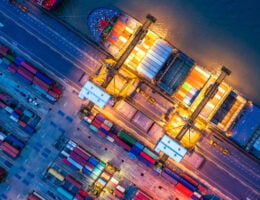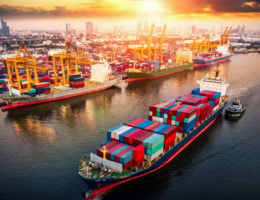Anti-dumping and anti-subsidy rules are a powerful tools that Belgian/EU goods manufacturers can employ to support their business. Anti-dumping and anti-subsidy measures take the form of additional import duties that are due on competing imported goods. These duties, which are in force for an average of 12 years and are at an average level of 30%, reduce the import volume of imported goods by an average of 85%. They thus significantly reshape markets for prolonged periods.
In the realm of international trade, the anti-dumping instrument plays a crucial role in safeguarding domestic industries against unfair trading practices. Navigating the intricate landscape of anti-dumping procedures across various jurisdictions requires an understanding of each jurisdiction’s rules and processes. To help further that understanding, the Baker McKenzie global trade remedies team has put together a comparative table of anti-dumping procedures in five key anti-dumping jurisdictions: the European Union, the United States, Brazil, China, and Japan.
Discussions at the World Trade Organization on key issues concerning the regulation of international trade are intensifying in the lead up to the 13th biennial meeting of the highest decision making organ of the organization — the Ministerial Conference — scheduled to take place from 26-29 February 2024 in Abu Dhabi.
Baker McKenzie’s Sanctions Blog published the alert titled Blog Series: Sanctions Enforcement Around the World, the Belgian Perspective on 26 June 2023. Read the article via the link here. Please also visit our Sanctions Blog for the most recent updates.
World Trade Organization Members laid out several key principles for determining the customs value of imported goods in the 1995 Customs Valuation Agreement with the aim of ensuring that the value of Members’ tariff concessions would not be nullified or undermined. Nonetheless, the WTO is – incorrectly – seldomly considered as a relevant forum for addressing customs valuation issues.
The European Union actively uses anti-dumping and anti-subsidy (or countervailing duty) investigations to protect the EU manufacturing industry from competition from imports. Imports from Türkiye are a prime target for these investigations: in the past 20 years, imports from Türkiye were targeted in 15 anti-dumping and anti-subsidy investigations. Five of these investigations were initiated in the last three years.
The e-commerce moratorium at the World Trade Organization (WTO) continues to provide fertile ground for discussions between WTO Members. In the most recent discussion round, held in April 2023 in the context of the WTO Work Programme on Electronic Commerce, WTO Members agreed there was a need for further discussions on the definition and scope of the moratorium, and on its implications on developing countries.
On 4 May 2023, Royal Excelsior Virton, a professional football club in Belgium’s second division, announced that it lodged a complaint against competing club SK Lommel with the European Commission under the new Regulation 2022/2560 on foreign subsidies distorting the internal market (“FSR”). This appears to be the first time the Commission is publicly asked to initiate an ex officio investigation under the FSR.
The European Union actively uses anti-dumping and anti-subsidy (or countervailing duty) investigations to protect the EU industry. Imports from Indonesia are a prime target for these investigations. Since 2003, imports from Indonesia were targeted in 15 anti-dumping and anti-subsidy investigations, and four of these investigations were initiated in the last three years.
A remarkable recent trend in trade policy is the pivot of countries towards issue-specific trade agreements. On the heels of standalone regional or bilateral digital trade agreements, countries are now exploring raw material access as the new frontier for bilateral trade cooperation – often in the context of the green transition.









